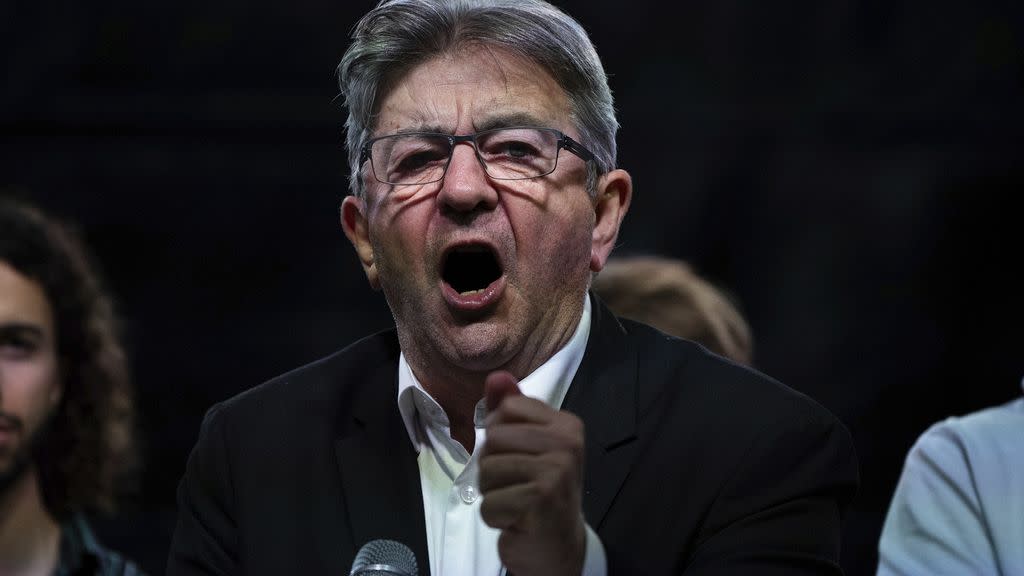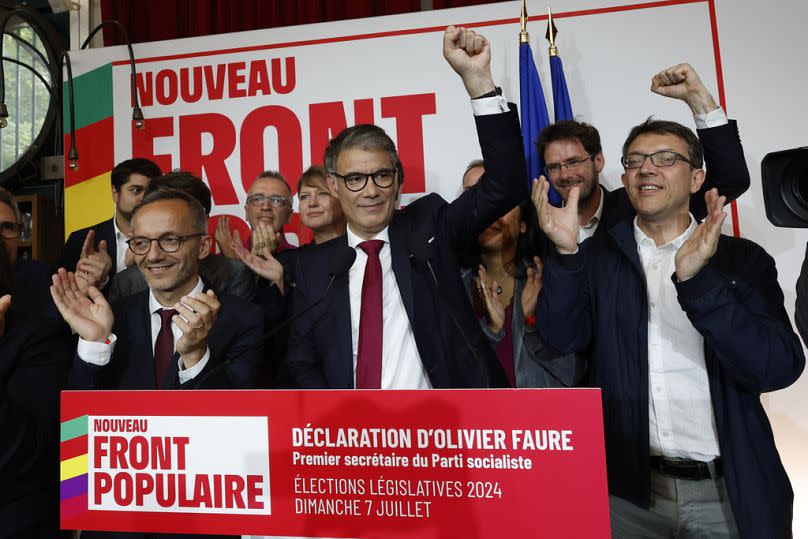French elections: Will the left-wing coalition finally agree on a Prime Minister?

Will the left-wing coalition New Popular Front that won the most seats in the French legislative elections finally agree on a name for the future Prime Minister?
The alliance composed of the hard-left France Unbowed party, the Socialists, Greens and Communists has been squabbling over who should lead the future government.
On Monday evening, the Socialist party said it had found a "common candidate from civil society" for the position of Prime Minister approved by the Greens and the Communists.
The name of Laurence Tubiana, the driving force behind the 2015 Paris Climate Agreement, was presented as a possible nominee for the role.
But the academic is being heavily criticised by the France Unbowed Party, who accuse her of being close to French President Emmanuel Macron.
"If this is the profile our partners are working on, I'll fall off my chair," said Manuel Bompard, the national coordinator of the France Unbowed Party.
"It's a proposal that doesn't seem serious to me," he said during an interview on Tuesday morning on the French TV channel France 2.
On Monday afternoon, the France Unbowed party announced through a press release they are suspending discussions until further notice, blaming the Socialists for sabotaging the negotiations.
On Saturday, the Socialist Party vetoed the candidacy of former MP Huguette Bello, who had overwhelming support from the Communists and the France Unbowed Party, angering the two parties.

The first public session of the French National Assembly opens this Thursday and the left-wing coalition hopes to present a candidate by then.
According to the French Constitution, the president has the power to appoint whoever he or she wants as prime minister.
Therefore, French President Emmanuel Macron is not obliged to nominate someone from the largest bloc, currently the NFP.
However, institutional logic implies the nominated prime minister needs to gather enough support in the National Assembly to avoid a no-confidence vote, which would lead to the fall of the government.
Public Finances: the Court of Auditors sounds the alarm
In this tense political climate, the Court of Auditors presented its annual report on public finances on Monday morning.
In the report, the country’s budget watchdog describes a "worrying situation" for France’s public finances due to the Covid-19 pandemic and inflation.
The Court of Auditors warns the situation could worsen due to the post-election political uncertainty – an unprecedented situation in France’s modern-day history.
"It is clear that there is a need for fiscal adjustment in France and in other countries with high debt," said the European Commissioner for Economy Paolo Gentiloni on Monday ahead of a meeting of EU finance ministers in Brussels.
The ministers are due to discuss for two days excessive deficit procedures against seven EU countries, including France.
"Of course, we are aware of the institutional difficulties" of the country, stressed Paolo Gentiloni, while judging it "possible" and "necessary" to reduce public deficits.
France exceeded the public deficit limit set at 3% of gross domestic product (GDP) in 2023.
France will have to take corrective measures to comply with the budgetary rules of the European Union in the future.
However, some MPs from the NFP coalition have announced they will refuse to implement any austerity measures to comply with the EU rules.

